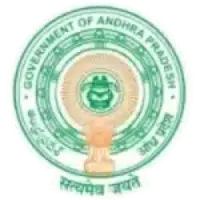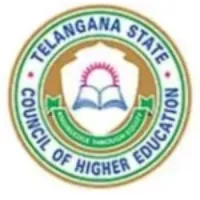Latest Applications Open 2024:
AP PGECET 2024 Electrical Engineering Syllabus has been Available now. The AP PGECET Electrical Engineering syllabus is a comprehensive guide outlining the topics and subjects candidates must cover when preparing for the Andhra Pradesh Postgraduate Engineering Common Entrance Test (AP PGECET) in Electrical Engineering. This syllabus serves as a roadmap for candidates, helping them focus their studies on the specific areas that will be tested in the examination.
The syllabus covers various topics, including electrical circuits, power systems, control systems, electrical machines, digital electronics, and more. It is designed to assess candidates’ knowledge and understanding of fundamental electrical engineering concepts and their ability to apply them in practical situations.
Candidates are encouraged to thoroughly review the AP PGECET Electrical Engineering syllabus, as it provides valuable insights into the exam’s content and structure. By mastering the topics outlined in the syllabus and practicing with relevant study materials, candidates can enhance their chances of performing well in the AP PGECET and securing admission to postgraduate Electrical Engineering programs offered by prestigious Andhra Pradesh institutions.
AP PGECET 2024 Electrical Engineering Syllabus – Available
AP PGECET 2024 Electrical Engineering Syllabus has been Available now. Click to Download Syllabus PDF.
Engineering Mathematics
Engineering Mathematics is a crucial branch of mathematics that applies mathematical concepts and techniques to solve real-world engineering problems. It forms the foundation for various engineering disciplines, including civil, mechanical, electrical, and computer engineering. This field encompasses various mathematical topics, such as calculus, differential equations, linear algebra, probability, and statistics. Engineering Mathematics plays a vital role in engineering modeling, analysis, and problem-solving. It ensures that engineers can design and develop innovative solutions, optimize processes, and make informed decisions in their respective fields of expertise. It is an indispensable tool for modern engineering, bridging the gap between theoretical principles and practical applications.
Linear Algebra: Matrix Algebra, Systems of linear equations, Eigen values and Eigen vectors.
Latest Applications For Various UG & PG Courses Open 2024
-
- Parul University | Admissions Open for All Courses 2024. Apply Now
- Chandigarh University | Admissions Open for All Courses 2024. Apply Now
- NIIT | Admissions Open for All Courses 2024. Apply Now
- KL University | Admissions Open for All Courses 2024. Apply Now
- Alliance UG | Admissions Open for All Courses 2024. Apply Now
- GD Goenka | Admissions Open for All Courses 2024. Apply Now
Calculus: Mean value theorems, Theorems of integral calculus, Evaluation of definite and improper integrals, Partial Derivatives, Maxima and minima, multiple integrals, Fourier series. Vector identities, Directional derivatives, Line, Surface and Volume integrals, Stokes, Gauss and Green’s theorems.
Differential equations: First order equation (linear and nonlinear), Higher order linear differential equations with constant coefficients, Method of variation of parameters, Cauchy’s and Euler’s equations, Initial and boundary value problems, Partial Differential Equations and variable separable methods.
Complex variables: Analytic functions, Cauchy’s integral theorem and integral formula, Taylor’s and Laurent’ series, Residue theorem, solution integrals.
Probability and Statistics: Probability and Sampling theorems, Conditional probability, Probability Density Function, Mean, median, mode and standard deviation, Random variables, Discrete and continuous distributions, Exponential, Poisson, Normal and Binomial distribution, Correlation and regression analysis.
Numerical Methods: Solutions of non-linear algebraic equations, single and multi-step methods for differential equations.
Electrical Engineering
Electrical Engineering is a dynamic field that deals with studying, designing, and applying electrical systems and devices. It plays a crucial role in powering our modern world, from generating electricity to developing advanced electronics and communication systems. Electrical engineers work on various projects, including power generation, transmission, and distribution, as well as innovations in renewable energy, automation, and electronic devices. With its broad spectrum of applications, Electrical Engineering is at the forefront of technological advancements, shaping how we live, work, and interact with technology in today’s fast-paced world.
Electric Circuits and Fields: Network graph, KCL, KVL, node and mesh analysis, transient response of dc and ac networks; sinusoidal steady-state analysis, resonance, basic filter concepts; ideal current and voltage sources, Thevenin’s, Norton’s and Superposition and Maximum Power Transfer theorems, two-port networks, three phase circuits; Gauss Theorem, electric field and potential due to point, line, plane and spherical charge distributions; Ampere’s and Biot-Savart’s laws; inductance; dielectrics; capacitance.
Signals and Systems: Representation of continuous and discrete-time signals; shifting and scaling operations; linear, time-invariant and causal systems; Fourier series representation of continuous periodic signals; sampling theorem; Fourier, Laplace and Z transforms.
Electrical Machines: Single phase transformer – equivalent circuit, phasor diagram, tests, regulation and efficiency; three phase transformers – connections, parallel operation; auto-transformer; energy conversion principles; DC machines – types, windings, generator characteristics, armature reaction and commutation, starting and speed control of motors; three phase induction motors – principles, types, performance characteristics, starting and speed control; single phase induction motors; synchronous machines – performance, regulation and parallel operation of generators, motor starting, characteristics and applications; servo and stepper motors.
Power Systems: Basic power generation concepts; transmission line models and performance; cable performance, insulation; corona and radio interference; distribution systems; per-unit quantities; bus impedance and admittance matrices; load flow; voltage control; power factor correction; economic operation; symmetrical components; fault analysis; principles of over-current, differential and distance protection; solid state relays and digital protection; circuit breakers; system stability concepts, swing curves and equal area criterion; HVDC transmission and FACTS concepts.
Control Systems: Principles of feedback; transfer function; block diagrams; steady-state errors; Routh and Nyquist techniques; Bode plots; root loci; lag, lead and lead-lag compensation; state space model; state transition matrix, controllability and observability.
Electrical and Electronic Measurements: Bridges and potentiometers; PMMC, moving iron, dynamometer and induction type instruments; measurement of voltage, current, power, energy and power factor; instrument transformers; digital voltmeters and multimeters; phase, time and frequency measurement; Q-meters; oscilloscopes; potentiometric recorders; error analysis.
Analog and Digital Electronics: Characteristics of diodes, BJT, FET; amplifiers – biasing, equivalent circuit and frequency response; oscillators and feedback amplifiers; operational amplifiers – characteristics and applications; simple active filters; VCOs and timers; combinational and sequential logic circuits; multiplexer; Schmitt trigger; multi-vibrators; sample and hold circuits; A/D and D/A converters; 8-bit microprocessor basics (8085), architecture, programming and interfacing.
Latest Applications For Various UG & PG Courses Open 2024
-
- Parul University | Admissions Open for All Courses 2024. Apply Now
- Chandigarh University | Admissions Open for All Courses 2024. Apply Now
- NIIT | Admissions Open for All Courses 2024. Apply Now
- KL University | Admissions Open for All Courses 2024. Apply Now
- Alliance UG | Admissions Open for All Courses 2024. Apply Now
- GD Goenka | Admissions Open for All Courses 2024. Apply Now
Power Electronics and Drives: Semiconductor power diodes, transistors, thyristors, triacs, GTOs, MOSFETs and IGBTs – static characteristics and principles of operation; triggering circuits; phase control rectifiers; bridge converters – fully controlled and half controlled; principles of choppers and inverters; basis concepts of adjustable speed dc and ac drives.
Electric Traction System: Speed-time curves, Specific energy consumption, Mechanism of train movement.

As a dedicated Biology Science graduate, I’m passionate about sharing the latest updates in national and state entrance exams through my blog. I aim to keep aspiring students informed about exam trends, important dates, and changes in syllabi. With a keen interest in education, I strive to offer valuable insights for students navigating the competitive landscape of entrance examinations and admission tests. Stay updated with me.

